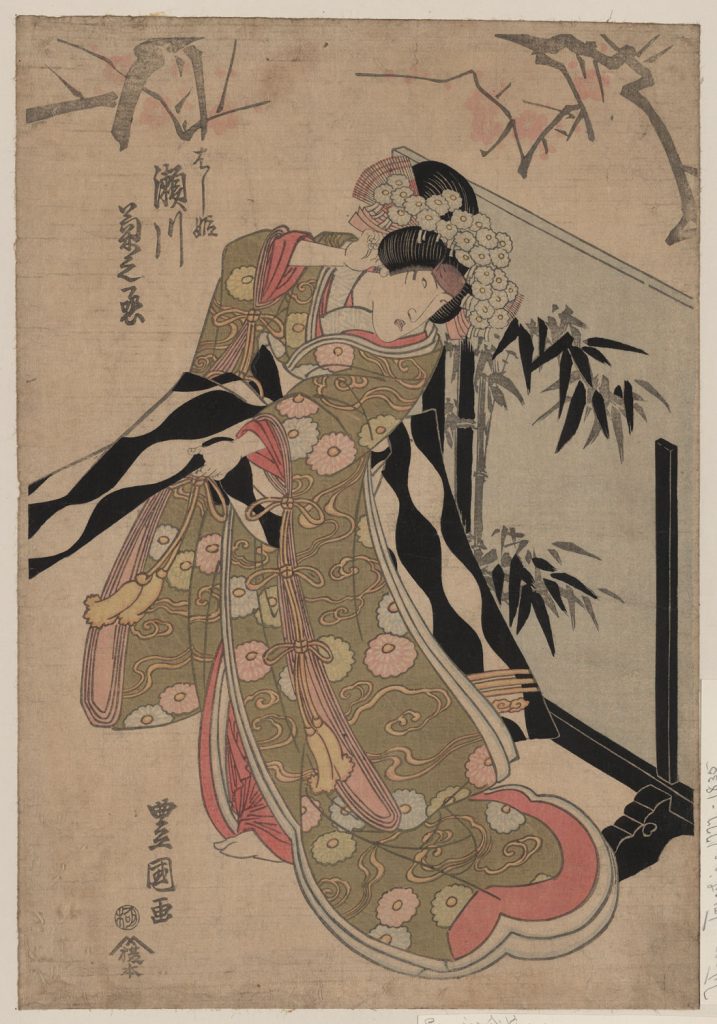The Golden Girl—that’s what my sister and I called the most popular girl in our town. We’d become very jealous of her on account of her many admirers, one of whom was our very own father. We pained to hear him praise her beauty, talent, and intelligence, wondering to ourselves, “Dad, does that mean you’re embarrassed by your daughters for being ugly, unskilled, and stupid?”
In college, I entered a national competition that awarded the winner with a summer study session abroad. To my dismay, the Golden Girl beat me out in the semifinals. The worst blow, however, came a couple of years after college, when the guy with whom I’d fallen in love began dating her not long after he stopped seeing me. In just a matter of months, they became engaged and got married. I was beside myself with jealousy—the Golden Girl had done it again.
She came to my mind again years later when, during a weekly Buddhism study class, my teacher, Nobuo Haneda, told the following story:
One afternoon, an old lady served a slice of cake to each of her two grandsons. As soon as the grandmother left the room to attend to some chores, the older boy knocked over his brother and grabbed the younger boy’s piece of cake to gobble down along with his own. The younger brother ran crying to his grandmother. “I’m so jealous of my brother,” he screamed. “He’s much stronger than me and takes all my things away!”
The grandmother responded to the boy: “Don’t forget that right now there’s someone who is jealous of you. There was a little boy who lived down the street—he was killed in an accident a few days ago. Now he’s looking at you, feeling jealous that you can be angry and cry.”
For much of my life, I realized, I had seen myself as the younger brother from Haneda Sensei’s story, always losing out to people like the Golden Girl. But upon hearing the story, I remembered that she had met the same fate as the boy who lived down the street. She too had died suddenly, in her case from cancer. I never had the Golden Girl’s guy, her looks, or the accolades from people like my father, but at least I was alive. Her death forced me to see the ugliness of my jealousy, changing my dabbling with Buddhism into an earnest search for the true teachings of self-transcendence. Now as I have recently lost loved ones, my parents and sister among them, I remember my teacher’s story. I think of the dead, both those I loved and resented, looking at me with a wistful jealousy that encourages an appreciation of life, no matter its occasional moments of anger and frustration.
Some may balk at this sentiment, noting that Buddhism portrays life as an experience full of suffering from which one seeks escape. “What’s so great about being alive if it’s rife with stress and misery?” they might ask. Yet it is precisely our recognition of life’s inevitable hardships, along with our uprooting of the attachment that exacerbates them, that allows us to appreciate the mere fact of being. Suffering and its unwholesome causes are not to be escaped but to be confronted—and eventually transformed into wisdom and compassion.
The teachings of the Buddha tell us to focus on this moment of our being alive, rather than on some hypothetical “shoulda coulda woulda.” Even in times of pain and irritation, in our stumbling screwups and posturing phoniness, we are breathing, emoting, perceiving and being perceived. The life that manifests itself moment by moment in us is the unbounded light, referred to in the Pure Land tradition as amitabha, an expression of reality as a whole rather than a narrow version of it constrained by self-interest. We chant Namu Amida Butsu (I take refuge in amitabha) in awareness of that light that bursts through us, the light that interacts with the world by living in each of us equally, whether we are a Golden Girl or a Buddhist teacher.
♦
Read more in Tricycle’s Special Section on Jealousy & Envy.
Thank you for subscribing to Tricycle! As a nonprofit, we depend on readers like you to keep Buddhist teachings and practices widely available.
